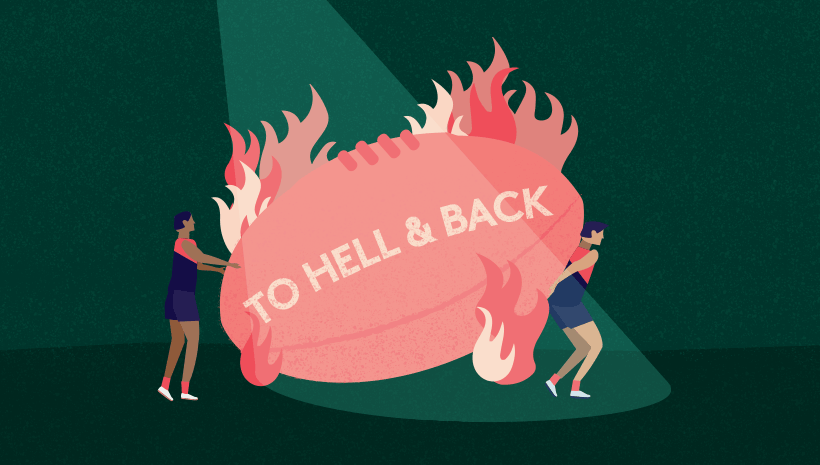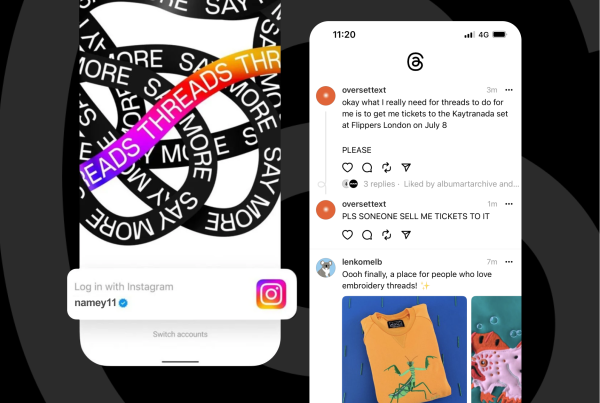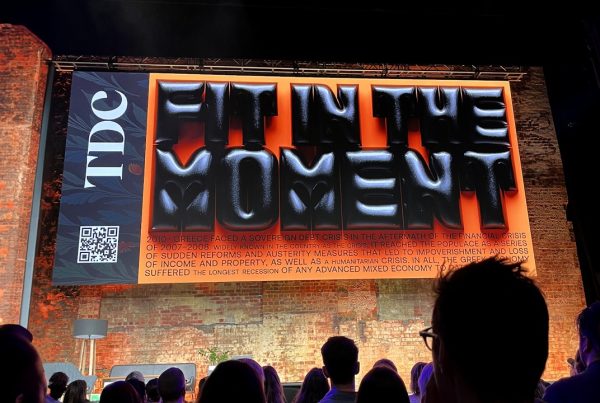
When brands suffer from harder times, bad results, a tarnished image or from just being a bin fire of a corporate citizen, you might expect to see them laying low, shutting their mouths completely or even pumping cash into perception-changing campaigns about how they’re different now and why you should still care (see any recent big-four bank ad).
In professional sports, teams that linger at the bottom of the ladder probably feel this more than most – their rabid fan bases demanding not just improvement, but victory – nay, perfection – at any cost.
That’s why most sports teams, even if they are cellar dwellers year after year, still pump out some serious hype-up, action-packed marketing that shows muscly people leaping through the air on impossibly epic photoshopped backgrounds.
But when you think about the reasons people love sport – the drama, the heroes, the villains, the triumphs, the heart-breaking or tear-jerking finishes – it all stems from the fact sports can tell a thrilling, chilling story.
And not all of those stories happen while the game clock’s ticking.
Australian rules football club the Melbourne Demons – whose own former captain labelled the club “an aberration” and said that “they’re just not very good” – have done something braver and potentially more impactful prior to their 2020 season than most clubs would even dare.
Their recent history – apart from the club’s finals cameo in 2018 – has been disastrous. They finished 17th in 2020. Their performances crushed fans game after game. They have had the decade from hell.
Enter their documentary series, To Hell and Back.
Released in five parts, the start of episode 1 is a no-holds-barred look at how shit they have been. There are swear words, there’s venomous commentary about their lack of skill and conviction, and there’s sullen faces everywhere as the coach spells out the hell they’ve been through.
Then comes the sweat – it shows fans just what the club is willing to do to get back on track. It’s visceral, it’s raw, it’s emotional – just how all good stories should be told.
And let’s not forget the locker room is often sacred ground. But the club shows their failures and small triumphs in full view. There are devastating narratives about their captain standing down, about injury-riddled veterans fighting to get back on the field, about a fallen star looking to keep his career alive.
The honesty in the storytelling and the timing of it will do a better job of getting their fans’ blood pumping than any hype-fuelled advertising ever could.
And let’s not forget – this content is for the diehards. They will get pissed off, they will have moments of clarity about how human the blokes are on the field, they will feel conflicted about loving a team that has let them down for the past decade. But in my opinion, I think this will be sugar in the tooth of the fans who watch it – a painful, raw experience that delivers hits of sweetness as it goes along.
It’s a lesson in content because it so skilfully hones in on the emotions of the fans while giving the club a vessel to show just how hard its willing to work to give them something to cheer for.
In short, it aligns audience needs with business objectives (engaged fans equals more memberships sold and more games attended) – all with the blood, sweat and tears that professional sport delivers.





